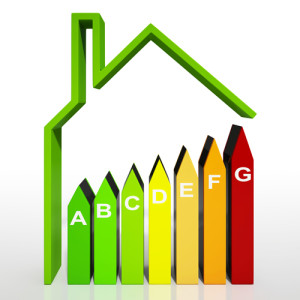Homeowner’s Insurance Went Up? Credit Rating Could be the Problem
As most people are aware, your credit score can have a huge effect on your life these days. Your credit score can positively, or negatively affect everything from the interest rate you are charged on your mortgage to a background check for a new job.
In addition, it can have a huge effect on your homeowners insurance rates.
According to a recent report done by InsuranceQuotes.com, homeowners with only a fair credit score could end up paying 32% more for homeowners insurance than a homeowner with an excellent credit rating.
Even worse, if you have a poor credit rating you will charged almost double what a homeowner with excellent credit pays on a yearly basis. This can add up to some serious coin. According to ValuePenguin.com the average homeowner pays $952 a year for homeowners coverage, so doubling that can hit a budget hard.
This is the second year in a row that the study has shown homeowners with a less than stellar credit rating are paying much more for homeowners coverage. Experts say insurers are giving more weight each year to consumer credit ratings.
Why do they insurers love credit rating so much? Statistics never lie and statistics show that consumers with poor credit ratings tend to file more claims. In fact, as a consumer’s credit rating goes down the greater the chance that they will file homeowners claim.
It’s not always allowed
Using a consumer’s credit rating to determine insurance rates is not legal in all states, but it is in most of them. Currently California, Maryland and Massachusetts do not allow insurers to factor in a credit report when calculating homeowners insurance rates.
Other states use them extensively. As an example, Montana had the largest premium increase between consumers with a fair credit rating to those with an excellent credit rating. In Montana the difference was a whopping 66%. Washington DC came in second with a 61% increase, Texas rounded out the top three with a 55% increase. Colorado was a close fourth at 54%.
Florida residents were on the other end of the spectrum with a 0% increase followed by New York with an average increase of 9% and North Carolina coming in third with a mere 10% increase.
Not everyone is aware
Unfortunately, many consumers are unaware that their credit rating can have such an effect on buying a home.
Requesting your credit score from the credit reporting agency won’t necessarily give you an accurate idea of what an insurer is looking at, in most cases they use a proprietary score. According to industry experts, insurers typically use a credit-based insurance score (CBIC) which is different than a traditional credit report.
Regardless of what score is used to determine your homeowners insurance rate, looking after your credit history is always a good idea.
Here are a few tips for maintaining your credit score:
- Always pay bills on time. According to experts your payment history has a heavy influence on your credit score.
- Use your credit sparingly. Much like your payment history, how much you actually owe has a big effect on your credit rating. If possible keep your credit usage under 25% of your credit limit.
- Limit new cards. Do not open a new credit card account unless it is absolutely necessary. A large number of accounts can negatively affect your credit rating, and every new card dings your credit score a bit.
- Leave old accounts open. When you close down old credit cards, it decreases your available credit, which can have a negative affect on your rating.
Finally, if your homeowners rates are headed off consider shopping your coverage with us at HomeInsuranceKing.com. Experts recommend shopping all insurance coverages at least once a year. You can shop multiple home insurance quotes with us and compare up to 12 different carriers. Shop and save up to 40% with us today.

